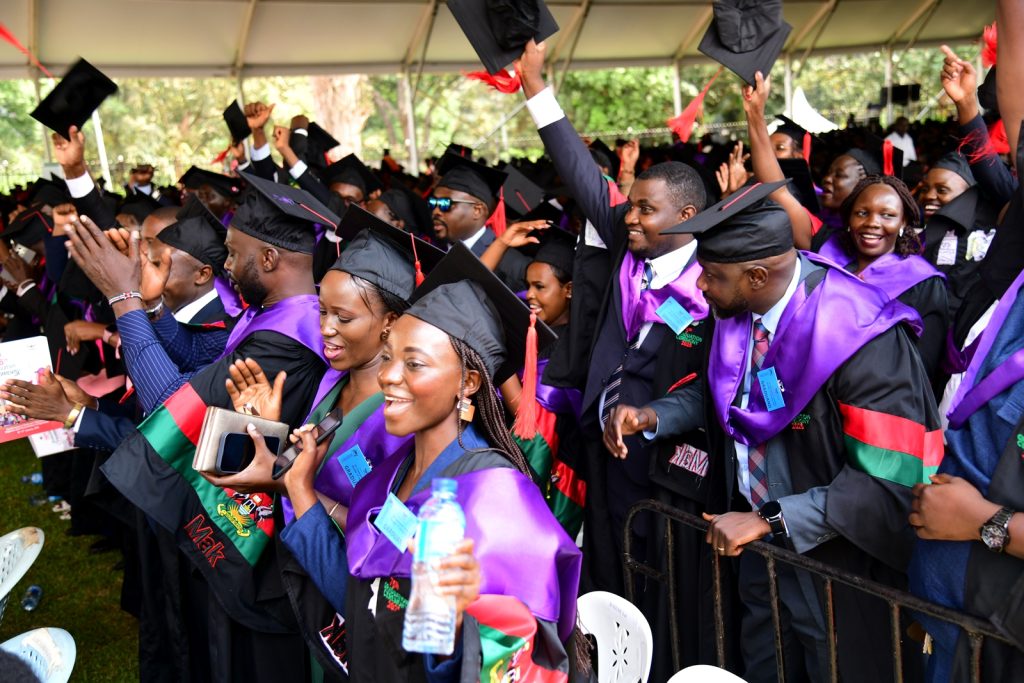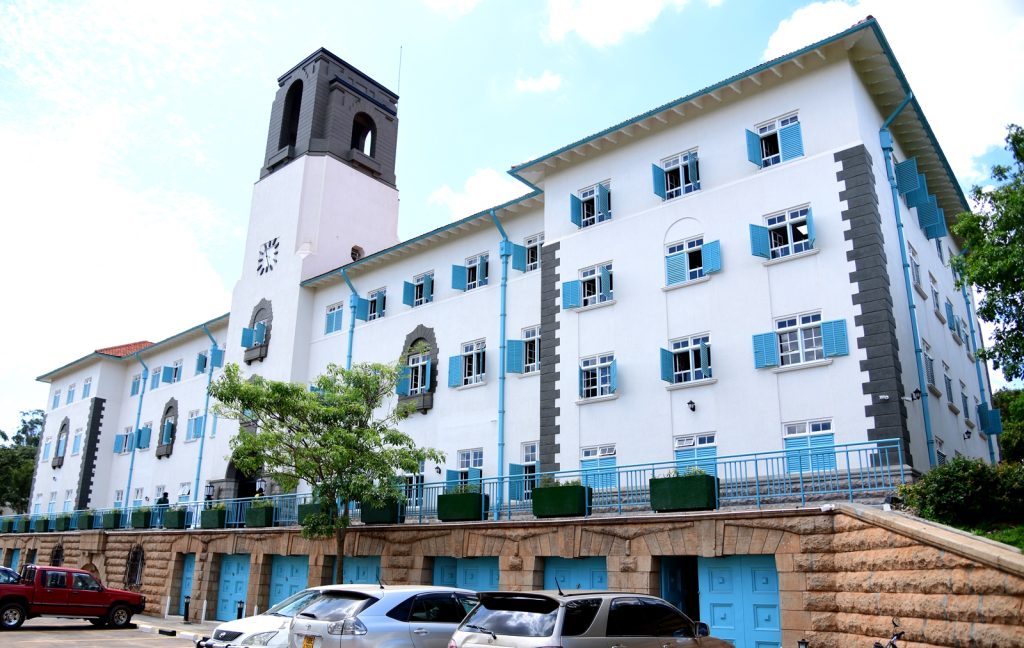Research And Innovations In School Of Law In 2017
Research Project 1 : Access to Justice for Women incarcerated with Children
Benefits of the research (How is this research/innovation going to improve people’s livelihood)
Worldwide, prisons and prison regimes have almost invariably been designed for the majority male prison population – from the architecture of prisons, to security procedures, to healthcare, family contact, work and training. In the last decade, there has been a marked increase in the numbers of women being incarcerated in detention facilities- this has given rise to gender-specific health and welfare care needs. While development has been slow and piecemeal, there is a growing international legal framework on the situation of women in conflict with the law- specifically women who are primary care givers and those women incarcerated with children.
The study therefore sets out to realize the following;
a. Determine and document the situation of mothers in incarceration with children in prisons, this should reflect their lived realities and access to justice challenges they face.
b. To determine and document the challenges that mothers in incarceration face in order to better advocate for their better inclusion in the justice system and legislative reform.
c. To establish existing intervention models for the mothers and children and the lessons learnt that can be harness to enhance access to justice for mothers in incarceration.
d. To examine and document best practices can be drawn from a comparative analysis with countries that share similar legal and judicial framework like Uganda.
e. Identify the current actors working in the area of access to justice for women in incarceration with children.
Partners involved
The study is commissioned by the Public Interest Law Clinic (PILAC ) School of Law and conducted by KIROM ASSOCIATES
Cost: 23,430,000 UGX
Lead Researcher is Carol Adoch 0718209570
Research Project 2 : Promoting Disability Rights through Legal Education at the School of Law, Makerere University
Benefits of the research
Research on the disability law and rights in the School of Law, Makerere University. was designed as the first step in introducing the teaching of Disability Law and Rights at the School of Law, Makerere University. Although the School of Law, Makerere University is the oldest Law School in Uganda, it had until the commencement of the Project not taken any steps to incorporate disability law and rights into its curriculum. Generally, the School has for a long time put much emphasis on modules that prepare candidates for commercial legal practice. It is against this background that the Project was conceived as a tool through which curriculum reforms that will result into the teaching of disability rights and law at the School of Law, Makerere University could be influenced. It was hoped that this would result into changes that will see a legal profession and eventually a judicial system that is schooled and skilled to address the legal and human rights challenges Persons with Disabilities face.
Four research papers are being undertaken at the moment and the details are as below
1. Disability Rights in Maternal health in Uganda by Professor Ben Twinomugisha
Contact; twinosho@gmail.com
2. Disability, Marriage and Parenting. A case study of women with Disabilities by Dr. ZaharaNampewo
Contact;znampewo@gmail.com
3.Deepening access to published works for persons with visual impairments by Dr. Ronald KakunguluMayambala
Contact: rkakungulu@law.mak.ac.ug
Partners involved
The study is commissioned by the Public Interest Law Clinic (PILAC ) School of Law and conducted by academic members of staff in the School of Law with support from Open Society
Research Project 3 : HIDDENREALITIES; Screening for Experiences of Violence
Amongst War-Affected South SudaneseRefugees in northern Uganda. Working paper 25 – august 2017
Benefits of the research: The aim of the study is to show the importance in humanitarian contexts of responding to the injuries refugees carry with them from their country of origin, even as steps are put inplace to prevent further violations.
• To shape practices of data-collection regarding sexual and other forms of
Violence, hence establishing trends and essential steps in discussion of prevention of (sexual) violence in conflict. Present humanitarian practice is to wait for survivors of conflict-related sexualviolence to come forward for assistance. Most do not, resulting in prolonged sufferingand unwarranted obstacles to individual and household recovery and self-reliance inthe medium term, and obstacles to peace-building and post-conflict recovery in thelonger term.
This project explored whether a systematic approach to screening for experiences of
violence (sexual, physical and psychological) is possible in a range of humanitarian
settings (just arrived and longer-term, rural and urban) and, if so, what kinds of levels
of disclosure are found, what are some of the factors influencing disclosure positively
and negatively, and what might be the cost of addressing the most urgent needs.
The study offers an important starting point in understandingincidence and prevalence patterns. It suggests that humanitarian actors need toincrease their attention to the response to existing conditions, even as they work toprevent further violations in the humanitarian setting.
Partners involved: Refugee Law project with support from a number of stakeholders.
Source of Funding: Global Disaster Preparedness Centre and Response 2 Resilience.
Research Project 4: Study on Land Justice and Governance in Uganda
Project Brief:
The “Land Justice and Governance in Uganda” study is a one year project (Jan 2017 to December 2017) being implemented by the Human Rights and Peace Centre (HURIPEC, http://www.huripec.mak.ac.ug ) of the School of Law, Makerere University (MAK). The responds to the recent incidents in Uganda of land loss by individuals or groups for example in Amuru (northern Uganda) and Kayunga (central Uganda), either to the state, its agents or even private individuals through unfair, fraudulent and/or forceful means.
The study, is currently in its final stages and has involved: regional studies in three mostly affected districts of each of the three study regions that is Amuru, Otuke and Agago districts in northern, Kasese, Bundibugyo and Kabarole districts of Rwenzori sub-region in western and Kayunga, Mukono and Kampala districts in the central where it collected narratives of how different citizens have been affected by specific incidents of land losses as well as the effectiveness of the different governance structures in place charged with land management; a legal jurisprudential analysis involving an analysis of Uganda’s existing legal framework and a review of key decisions from the High Court, Court of Appeal/Constitutional Court and the Supreme Court in order to establish patterns and trends with regard to judicial and other responses and common cases of land and natural resources; regional dialogues which doubled as dissemination of findings and mediation platforms in the respective regions where the study was conducted. These reports are ready arenow being synthesized and merged into a national Status Report on Land Justice in Uganda which is due to be discussed and disseminated in October at a national stakeholders’ convening. In lieu of the recently appointed Commission of Inquiry into “the effectiveness of the land law and process of land acquisition, land administration, management and land registration,” some of the victims of land injustices identified by the study will be taken to appear and give testimonies before the Commission whose mandate needs to be exploited in order to better achieve the objectives of the project.
Benefits of the project
The study seeks to draw consensus on participation and inclusion of all Ugandans in key aspects of governance, specifically land and natural resource governance, as part of a wider agenda for a national dialogue. It appreciates the inseparable and indivisible nature of land, human rights and governance, emphasizing that the people who are claiming their rights to land cannot do so in exclusion of participation in governance of their country, and where conflicts have arisen, to be part of the forces of reconciliation. The study has attempted, and continues to bridge this gap, through research, documentation and dialogue between the different stakeholders at the local, regional and national level.
In this picture, some of the recently evicted residents of Apaa in Amuru district (northern Uganda) ponder the next move after a land conflict in which their huts were destroyed during an eviction. File Photo from Monitor publication by Sam Lawino.
Partners involved
Financial support for the project was provided by the Foundation Open Society Initiative for Eastern Africa (OSIEA) (the Project).
Consultants:
Prof. J. Oloka-Onyango is the lead consultant charged with the synthesis and merge of the four project reports into a national Status Report on Land Governance in Uganda. Each of the reports has also been edited to be published as a HURIPEC Working Paper for the year 2017.
The study was conducted by five 5 lead researchers namely: Denis Ojok (denis@yahoo.com), Rev. Fr. Dr. Paschal Kabura (pkabura@infocom.co.ug), Yusuf SerunkuumaKajura (yusufkajura@gmail.com) in the northern, western and central region respectively, and Dr. Rose Nakayi (rnakayi@law.mak.ac.ug) and Dr. Monica Twesiime-Kirya (mona.kirya@gmail.com) who undertook the analysis of the legal jurisprudence on land justice in Uganda.
Additional information about this project
For additional information, please contact HURIPEC’s Director, Dr. ZaharaNampewo (znampewo@law.mak.ac.ug, +256 779-114-220) and Mr. Brian Kibirango (bkibirango@law.mak.ac.ug, +256 784-534-242) who oversees and coordinates the study respectively.


